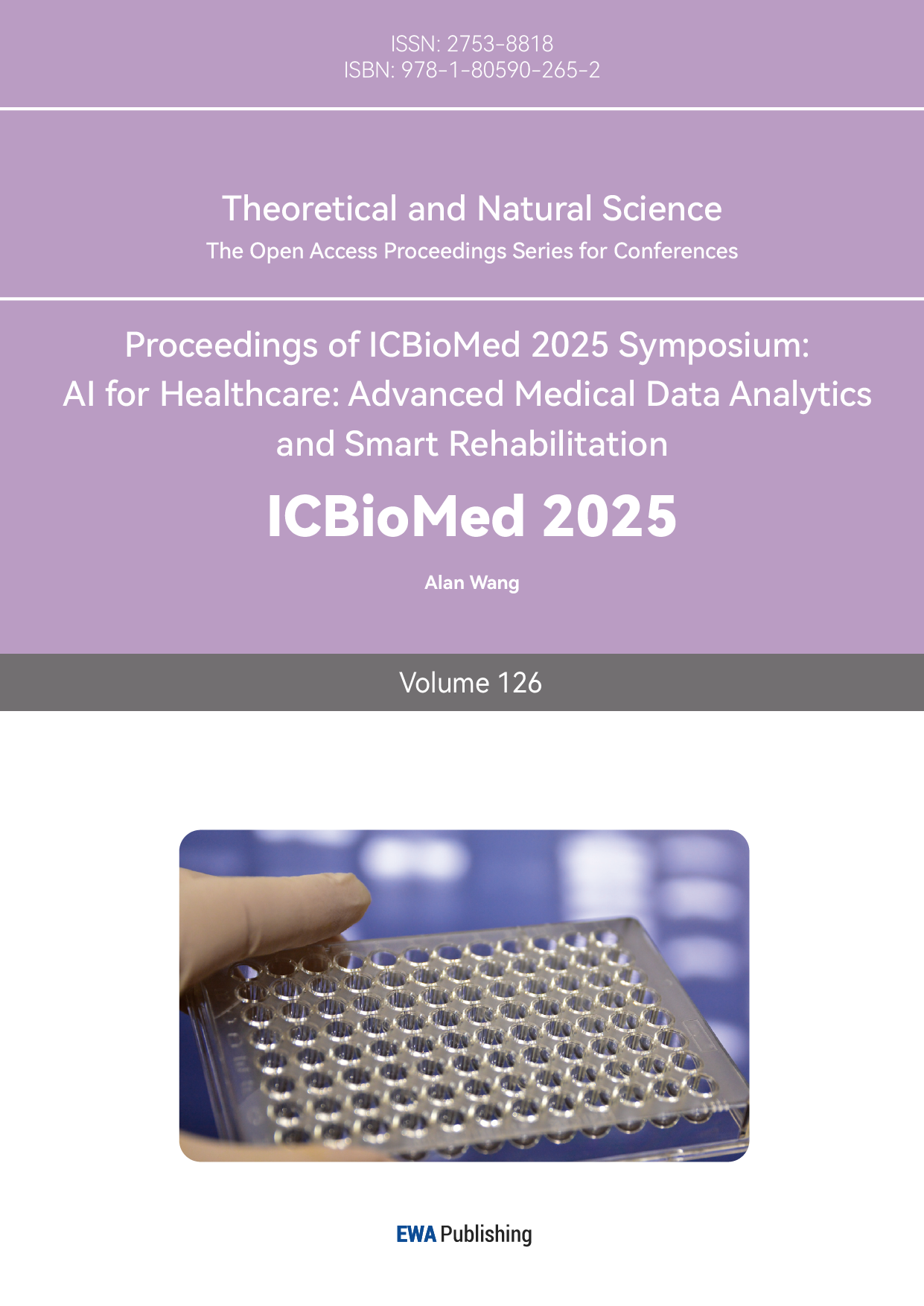References
[1]. Addissouky, T. A., Ali, M. M., El Sayed, I. E. T., & Wang, Y. (2024). Type 1 diabetes mellitus: retrospect and prospect. Bulletin of the National Research Centre, 48(1), 42.
[2]. Zarei, M., Sheikholeslami, M. A., Mozaffari, M., & Mortada, Y. (2025). Innovative immunotherapies and emerging treatments in type 1 diabetes management. Diabetes Epidemiology and Management, 17, 100247.
[3]. Subramanian, S., Khan, F., & Hirsch, I. B. (2024). New advances in type 1 diabetes. Bmj, 384.
[4]. Forlenza, G. P., DeSalvo, D. J., Aleppo, G., Wilmot, E. G., Berget, C., Huyett, L. M., Hadjiyianni, I., Méndez, J. J., Conroy, L. R., Ly, T. T., & Sherr, J. L. (2024). Real-world evidence of omnipod® 5 automated insulin delivery system use in 69, 902 people with type 1 diabetes. Diabetes Technology & amp; Therapeutics, 26(8), 514–525.
[5]. Jeun, R. (2025). Immunotherapies for prevention and treatment of type 1 diabetes. Immunotherapy, 17(3), 201–210.
[6]. Mondal, S., & Pappachan, J. M. (2025). Current perspectives and the future of disease-modifying therapies in type 1 diabetes. World Journal of Diabetes, 16(1), 99496.
[7]. Jacobsen, L. M., & Schatz, D. (2024). Immunotherapy-based strategies for treatment of type 1 diabetes. Hormone Research in Paediatrics, 1-19.
[8]. Yang, G., Fan, X., Liu, Y., Jie, P., Mazhar, M., Liu, Y., Dechsupa, N. & Wang, L. (2023). Immunomodulatory mechanisms and therapeutic potential of mesenchymal stem cells. Stem Cell Reviews and Reports, 19(5), 1214-1231.
[9]. Al Madhoun, A., Koti, L., Carrió, N., Atari, M., & Al-Mulla, F. (2024). Clinical application of umbilical cord mesenchymal stem cells preserves β-cells in type 1 diabetes. Stem Cells Translational Medicine, 13(2), 101-106.
[10]. Ludvigsson, J. (2020). Autoantigen treatment in type 1 diabetes: unsolved questions on how to select autoantigen and administration route. International journal of molecular sciences, 21(5), 1598.
[11]. Ludvigsson, J., Sumnik, Z., Pelikanova, T., Nattero Chavez, L., Lundberg, E., Rica, I., Martínez-Brocca, M. A., Ruiz de Adana, M., Wahlberg, J., Katsarou, A., Hanas, R., Hernandez, C., Clemente León, M., Gómez-Gila, A., Lind, M., Lozano, M. F., Sas, T., Samuelsson, U., Pruhova, S., Dietrich, F., Puente Marin, S., Nordlund, A., Hannelius, U. & Casas, R. (2021). Intralymphatic glutamic acid decarboxylase with vitamin D supplementation in recent-onset type 1 diabetes: a double-blind, randomized, placebo-controlled phase IIb trial. Diabetes Care, 44(7), 1604-1612.
[12]. Shi, Y., Lu, Y., & You, J. (2022). Antigen transfer and its effect on vaccine-induced immune amplification and tolerance. Theranostics, 12(13), 5888.
[13]. Passerini, L., Forlani, A., & Gregori, S. (2025). Advances in Regulatory Cell Therapy for Type 1 Diabetes: Emerging Strategies and Future Directions. European Journal of Immunology, 55(5), e202451722.
[14]. Spanier, J. A., Fung, V., Wardell, C. M., Alkhatib, M. H., Chen, Y., Swanson, L. A., Dwyer, A. J., Weno, M. E., Silva, N., Mitchell, J. S., Orban, P. C., Mojibian, M., Verchere, C. B., Fife, B. T., & Levings, M. K. (2023). Tregs with an MHC class II peptide-specific chimeric antigen receptor prevent autoimmune diabetes in mice. The Journal of clinical investigation, 133(18), e168601.
[15]. Pastore, I., Assi, E., Ben Nasr, M., Bolla, A. M., Maestroni, A., Usuelli, V., Loretelli, C., Seelam, A. J., Abdelsalam, A., Zuccotti, G. V., D'Addio, F., & Fiorina, P. (2021). Hematopoietic Stem Cells in Type 1 Diabetes. Frontiers in immunology, 12, 694118.
[16]. Wan, X. X., Zhang, D. Y., Khan, M. A., Zheng, S. Y., Hu, X. M., Zhang, Q., Yang, R. H., & Xiong, K. (2022). Stem Cell Transplantation in the Treatment of Type 1 Diabetes Mellitus: From Insulin Replacement to Beta-Cell Replacement. Frontiers in endocrinology, 13, 859638.
[17]. Hogrebe, N. J., Ishahak, M., & Millman, J. R. (2023). Developments in stem cell-derived islet replacement therapy for treating type 1 diabetes. Cell stem cell, 30(5), 530–548.
[18]. Cuscino, N., Castelbuono, S., Centi, C., Tinnirello, R., Cimino, M., Zito, G., Orlando, A., Pinzani, M., Conaldi, P. G., Mattina, A., & Miceli, V. (2025). A Bioartificial Device for the Encapsulation of Pancreatic β-Cells Using a Semipermeable Biocompatible Porous Membrane. Journal of Clinical Medicine, 14(5), 1631.
[19]. Toftdal, M. S., Grunnet, L. G., & Chen, M. (2024). Emerging Strategies for Beta Cell Encapsulation for Type 1 Diabetes Therapy. Advanced Healthcare Materials, 13(19), 2400185.



